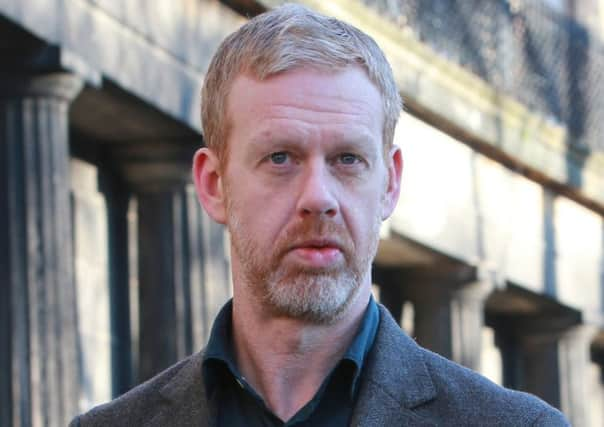Nick Freer: Scottish technology mixing with the big boys


We set up press interviews for Alison Grieve, founder of G-Hold, who develop handholding devices for tablets and smartphones, and multi-award winning Kafoodle, a health food startup I first met at the FutureX-run Startup Summit in Edinburgh back in November, were also in attendance. While some say that it’s hard for smaller tech players to impress at a major conference like CES, if you can make the right connections then the potential rewards outweigh the not insignificant investment required to be in the same room as the largest tech players on the planet; many of whom were, of course, small disruptive tech players at one point.
A key theme of CES was around mobile innovation and how 5G will enable the future, a subject that will be pored over again when the tech world moves on to Mobile World Congress in Barcelona at the end of February. pureLiFi, a former spin-out from the University of Edinburgh who are now one of Scotland’s most fancied startups, are at the forefront of emerging LiFi technology, and the team led by CEO Alistair Banham will not be at this year’s MWC to make up the numbers.
Advertisement
Hide AdAdvertisement
Hide AdArtificial intelligence, or AI, is now front and centre of every tech conference and its pros and cons being discussed. Along these lines, it was enlightening to hear David Richardson’s thinking on AI when he wrote for The Scotsman earlier this month.
Recently returned from a major conference on AI in Boston, David, a senior director at Edinburgh’s School of Informatics, talks about the exploration of new techniques like deep learning and how AI is performing well in areas like image recognition and speech processing. In the face of an army of naysayers fearful of large-scale job losses, David also noted that AI has the potential to create new jobs and enhance the capability of existing employees. Andrew Bone-founded Airts is a case in point with the team deploying AI-powered technologies to help two of the Big Four accounting firms increase workload efficiencies.
One of these firms, PwC, is running an AI-focused event in Edinburgh this week and it will be interesting to hear how advances in AI are impacting their own business.
In 2011, technology entrepreneur turned venture capitalist Marc Andresssen coined the “why software is eating the world” phrase in a Wall Street Journal article and in Scotland in 2018 software as a service (SaaS) is arguably the most exciting stream of our digital economy. Many of the leading lights from our sector are jetting off to San Francisco at the beginning of February for SaaStr 2018, the biggest event on the calendar for all things B2B SaaS. In tech terms, B2B SaaS is what we do best in Scotland and our finest proponents include companies like TVSquared, Administrate and FreeAgent.
The shining star of software development companies was Gavin Dutch-founded Kotikan. Kotikan helped develop mobile apps for Skyscanner and FanDuel before being bought out by the latter and during its time contributed to the success of businesses across Scotland. In more recent times, companies like CultivateHQ, xDesign, Bemo and Bad Dinosaur are among the software development players carrying the torch forward.
Silicon Valley remains the gold standard in the global context and if you are a digital entrepreneur who wants to make connections there, Bruce Walker of FutureX informs me there are a couple of spots left on the annual pilgrimage Bruce and the team lead to the valley every year that has historically taken in visits to software giants like Facebook, LinkedIn and Google.
l Nick Freer is a founding director of the Freer Consultancy